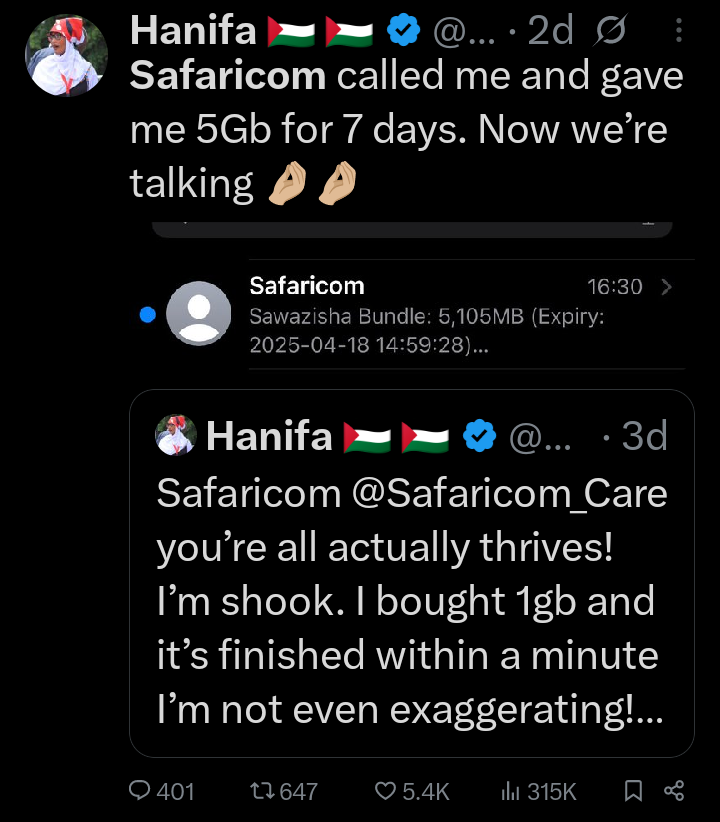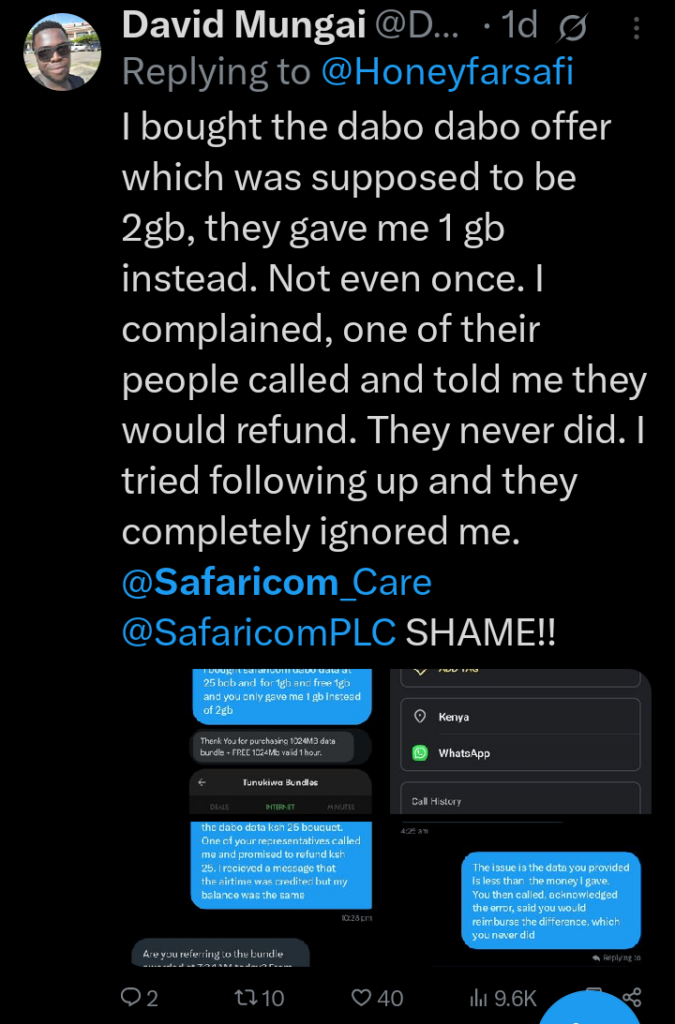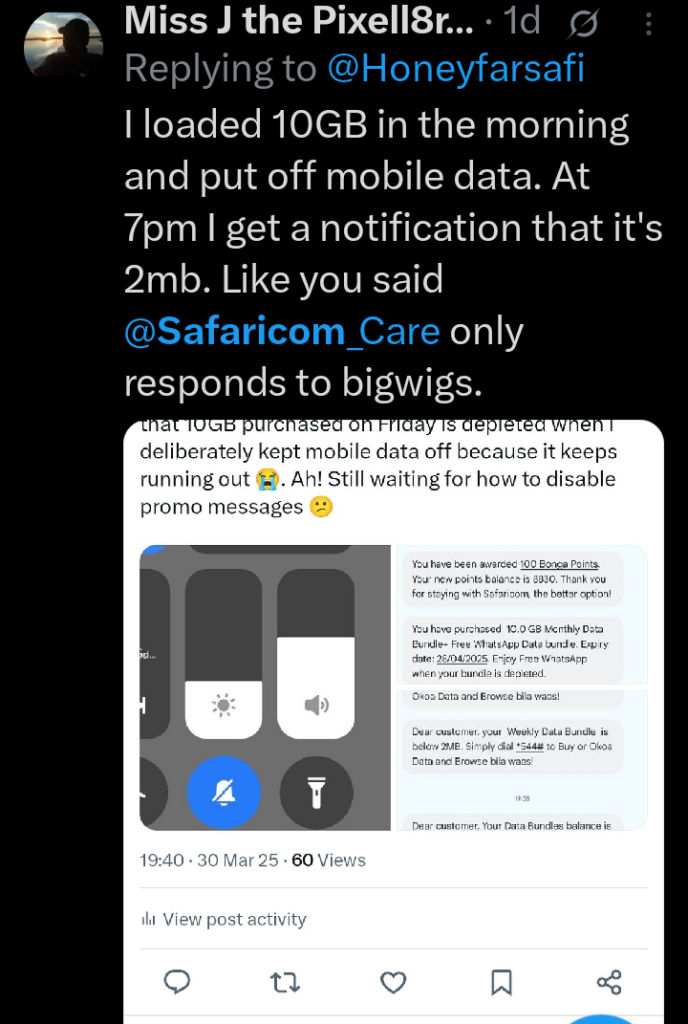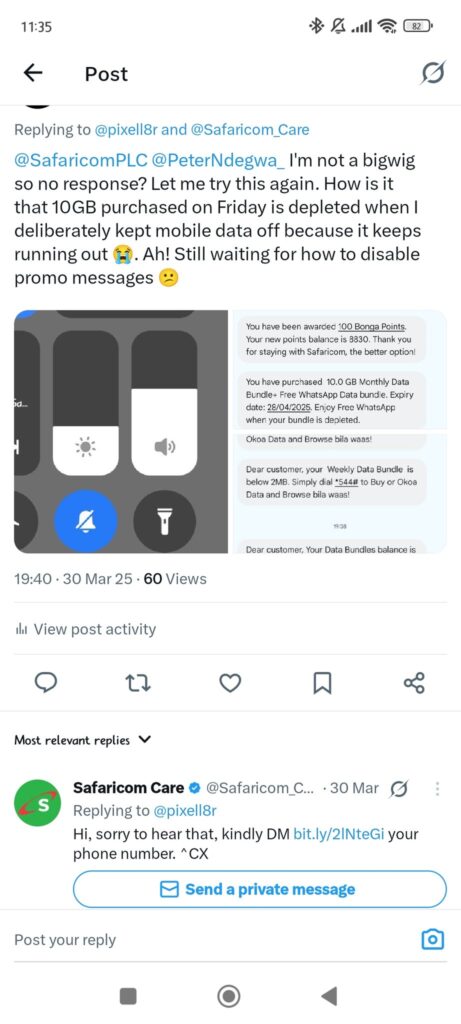According to activist Hanifa Farsafi, Safaricom has become a true enemy of the people. In a bold post on April 12, 2025, she invited Kenyans to expose what she termed “uwizi za Safaricom” a thread that quickly filled with hundreds of complaints from ordinary users frustrated by the company’s exploitative practices.
She made it clear that if she got refunded only because of her online following, then she would use her influence to fight for others too.

But the deeper concern she raised was even more disturbing, that Safaricom gave personal customer data to the government to help hunt down citizens.
This is not just a service provider failing it’s a betrayal of trust at the most dangerous level. A scroll through the thread reveals just how broken Safaricom’s relationship with its customers has become.
People complained of being subscribed to services they never asked for. Others reported that their airtime and data mysteriously disappeared, sometimes within minutes of purchase.

Some said their Mpesa accounts were frozen without explanation, cutting them off from their own money. These are not isolated cases. They form a consistent pattern of abuse, exploitation, and what many are now calling theft.
For a company that positions itself as a technology leader in Africa, it seems to specialize in creating obstacles instead of solutions.
What’s worse is how Safaricom appears to charge for everything even internal money transfers, something that barely makes sense when you look at how free it is to move money digitally in other parts of the world.

And then there are the complaints about receiving endless texts about data usage even while connected to WiFi.
Why is the company so eager to spam customers with useless messages while being so slow to respond to genuine concerns?
The biggest red flag, though, remains the issue of privacy. If what Hanifa and others are saying is true that Safaricom has been sharing customer data with the government then this is more than bad service.
It’s a matter of national security and civil rights. It means the company is potentially helping a regime track, target, and suppress voices of dissent.

This aligns with past fears in Kenya, especially during election seasons or protests, where people have claimed they were tracked through their phones. Safaricom’s silence on these allegations only makes them more believable.
Reviews on consumer platforms back this up. On Pissed Consumer and Trustpilot, users complain of Mpesa errors, poor customer support, and strange deductions that can’t be explained.
One review went as far as accusing Safaricom of working with the state to abduct and kill youths a harsh claim, but one that signals how deep the distrust has grown.

Even the “lipa mdogo mdogo” program meant to help people buy phones through installments has become a trap, with payments not being reflected properly, putting people in unnecessary debt.
What’s shocking is how little Safaricom has said about all this. No official statement has been made in response to this recent wave of complaints.
The silence feels deliberate. For a company with massive control over digital money and mobile networks in Kenya, acting this way is dangerous. It’s using its monopoly not to serve but to exploit.

Instead of innovation, we see manipulation. Instead of customer care, we get corporate arrogance.Safaricom’s reputation has never been perfect, but this is now something else. It’s not just about bad service it’s about fear, frustration, and exploitation.
The company must come clean about its relationship with the government and stop treating users like mere cash cows. Transparency, accountability, and respect for privacy are not optional. Until then, Safaricom should not be seen as a national pride, but as a corporate predator hiding behind shiny ads and empty promises.













Leave feedback about this